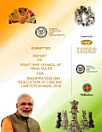Universal Standards for Defining Obscenity
About this ebook
The author examines a definition of obscenity proposed by the political and legal theorist Harry M. Clor, within John Finnis’ natural law theoretical framework. He also explores how positive law, including legislation, case law, and customary law, should respond to the proposed USDOs. The book addresses the theoretical foundation of the determination and regulation of obscenity, and it is supplemented with examples of legal practices from several jurisdictions, such as the United States, the United Kingdom, Canada, and Germany.
The book will appeal to scholars of legal philosophy, natural law theories, obscenity law, and free speech.
About the author
Long Cheng is an assistant professor at the School of Law, Shandong University. His research interests include constitutional law, jurisprudence, natural law theories, and international law.








